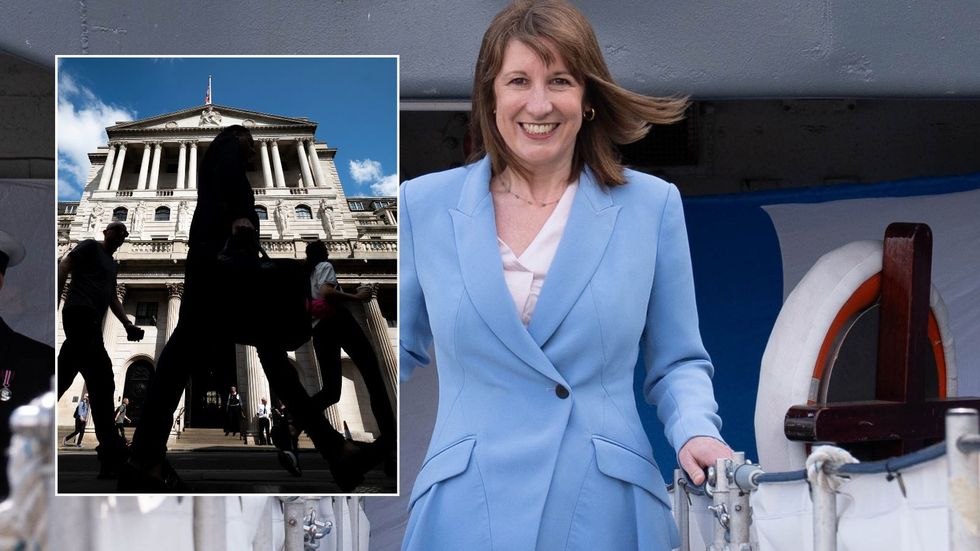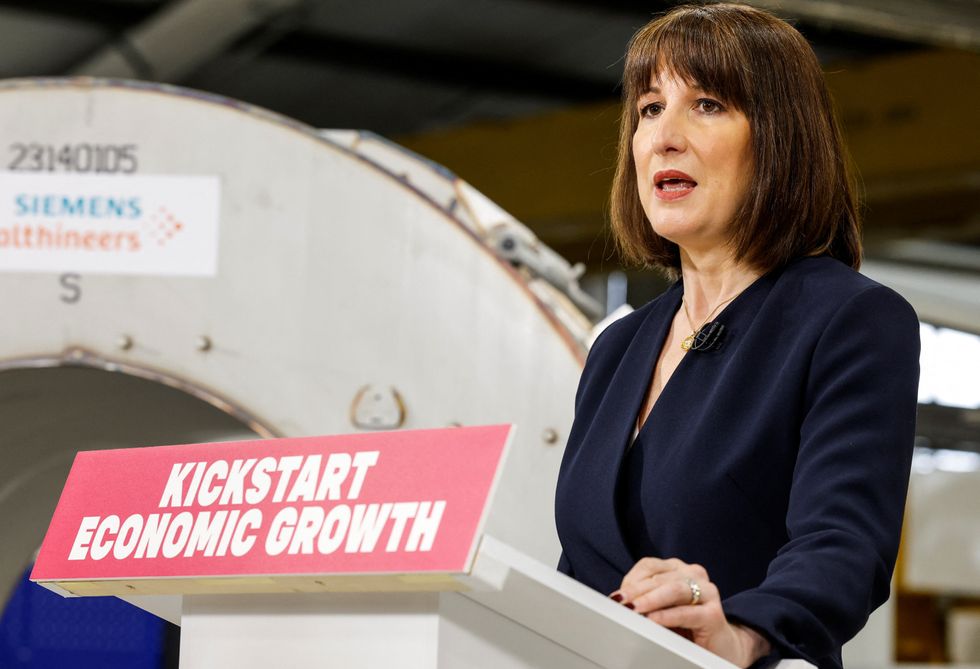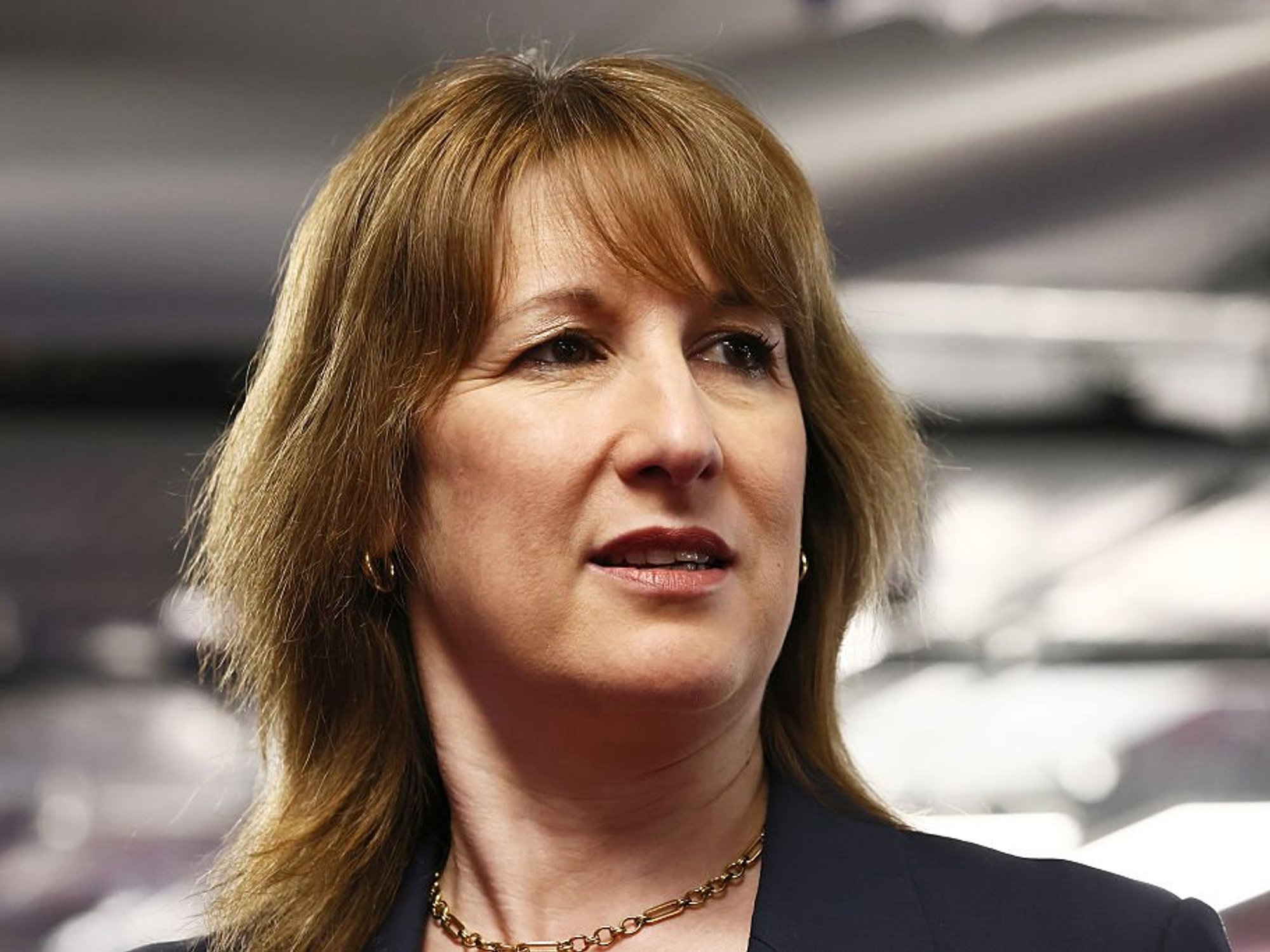Economy update: GDP forecast UPGRADED as UK 'economic recovery under way' in win for Rachel Reeves

Labour's history of economic woes and recessions |
GB NEWS

The IMF projects the UK economy's GDP will now grow by 1.2 per cent in 2025
Don't Miss
Most Read
The International Monetary Fund (IMF) has upgraded its growth forecast for the UK in a much-needed win for Chancellor Rachel Reeves ahead of the Labour Government's spending review next month.
According to the Washington-based think tank, Britain's gross domestic product (GDP) rate will grow by 1.2 per cent over the year, representing a slight upgrade on its previous forecast
Since Labour returned to power last July, the Chancellor has cited economic growth as being her priority which has led to her proposing controversial cuts to benefits and tax hikes.
In another boon for Reeves, the IMF suggested that the Treasury should ease up on its strict fiscal rules as part of its annual review into the state of the UK economy. Furthermore, the organisation also held its prediction that the UK economy will grow by 1.4 per cent in 2026.

The IMF has upgraded its growth forecast for the UK economy in a win for the Chancellor
|PA
According to the international think tank, "economic recovery is under way" in the UK despite the consumer price index (CPI) rate of inflation remaining above the Bank of England's desired two per cent target.
Despite upgrading its forecasts, the IMF warned that ongoing trade tensions resulting from US President Donald Trump's sweeping tariffs ave already wiped out 0.3 per cent in growth from the British economy.
Trade issues will continue to impact growth through “persistent uncertainty, slower activity in UK trading partners, and the direct impact of remaining US tariffs on the UK”, the IMF claimed
Furthermore, the body also noted that there is a greater risk that growth could be weaker than expected, due to the potential that global trade uncertainty will impact supply chains and weaken private investment.
Do you have a money story you’d like to share? Get in touch by emailing money@gbnews.uk.
 Rachel Reeves has made multiple changes to the tax system | PA
Rachel Reeves has made multiple changes to the tax system | PAIn its review of specific Labour policy, the IMF suggested that policy reforms by the Government to overhaul planning rules and loosen regulatory hurdles could support future GDP growth.
The organisation stated: "The authorities’ structural reforms, including to planning, and the increase in infrastructure investment could increase potential growth if properly implemented."
Reacting to the IMF's assessment, Rachel Reeves said: "The UK was the fastest growing economy in the G7 for the first three months of this year and today the IMF has upgraded our growth forecast.
"We’re getting results for working people through our plan for change – with three new trade deals protecting jobs, boosting investment and cutting prices, a pay rise for three million workers through the national living wage, and wages beating inflation by £1,000 over the past year."
Earlier this month, the Bank of England projected that the UK economy would grow by one per cent in 2025 and 1.25 per cent in 2026, coming in slightly below the IMF's forecasts.
This comes after the central bank's Monetary Policy Committee (MPC0 reduced interest rates from 4.5 per cent to 4.25 per cent, which is the base rate's lowest level since May 2023.
LATEST DEVELOPMENTS:

The UK economy is expected to grow by more than expected
| GETTYIn its review, the IMF urged the Bank of England to “continue to ease monetary policy gradually”, indicating it expects further reductions in interest rates throughout the year.
The IMF also asserted the current status quo of two reviews of the public finances every year by the Office for Budget Responsibility (OBR) should be changed.
It added: "There is still significant pressure for frequent fiscal policy changes, given that small revisions to the economic outlook can erode the headroom within the rules, which is the subject of intense market and media scrutiny."
More From GB News










